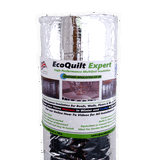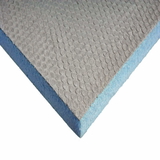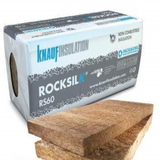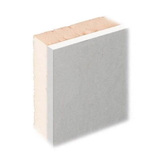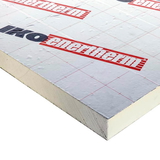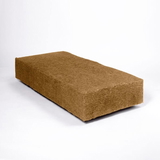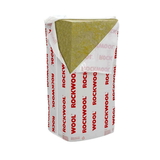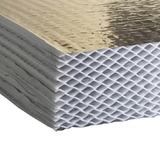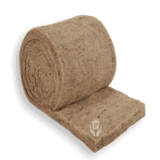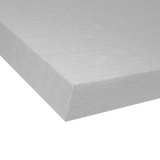- Blogs
- Applying the Right Insulation for the Right Application
Applying the Right Insulation for the Right Application

Maintaining a comfortable atmosphere in your building throughout the year heavily relies on insulation. It's the key to shielding against winter chills and summer heat. Yet, it's crucial to note that not all insulation products are one-size-fits-all. Different areas of your construction demand specific products tailored to their needs.
Every insulation product comes with unique qualities that make it suitable for particular applications. Hence, it's of utmost importance to ensure you're getting the right insulation for the job when making your selection.
An essential aspect to weigh is whether Glass Mineral Wool or Rock Mineral Wool suits your project better. Both are crafted with distinct applications in mind. Rock Mineral Wool, for instance, boasts slightly shorter fibre strands, resulting in superior compressive strength. This feature makes it ideal for products in flat roofing applications where walking during installation or maintenance is a consideration. In such cases, Rock Mineral Wool is preferred over Glass Mineral Wool.
Yet, the decision between Glass and Rock Mineral Wool isn't the only one you'll make. Even within each material category, there are crucial considerations that should not be overlooked.
Before we start discussing this topic, there's still a question to address: why is insulation important?
Why Does Insulation Matter?
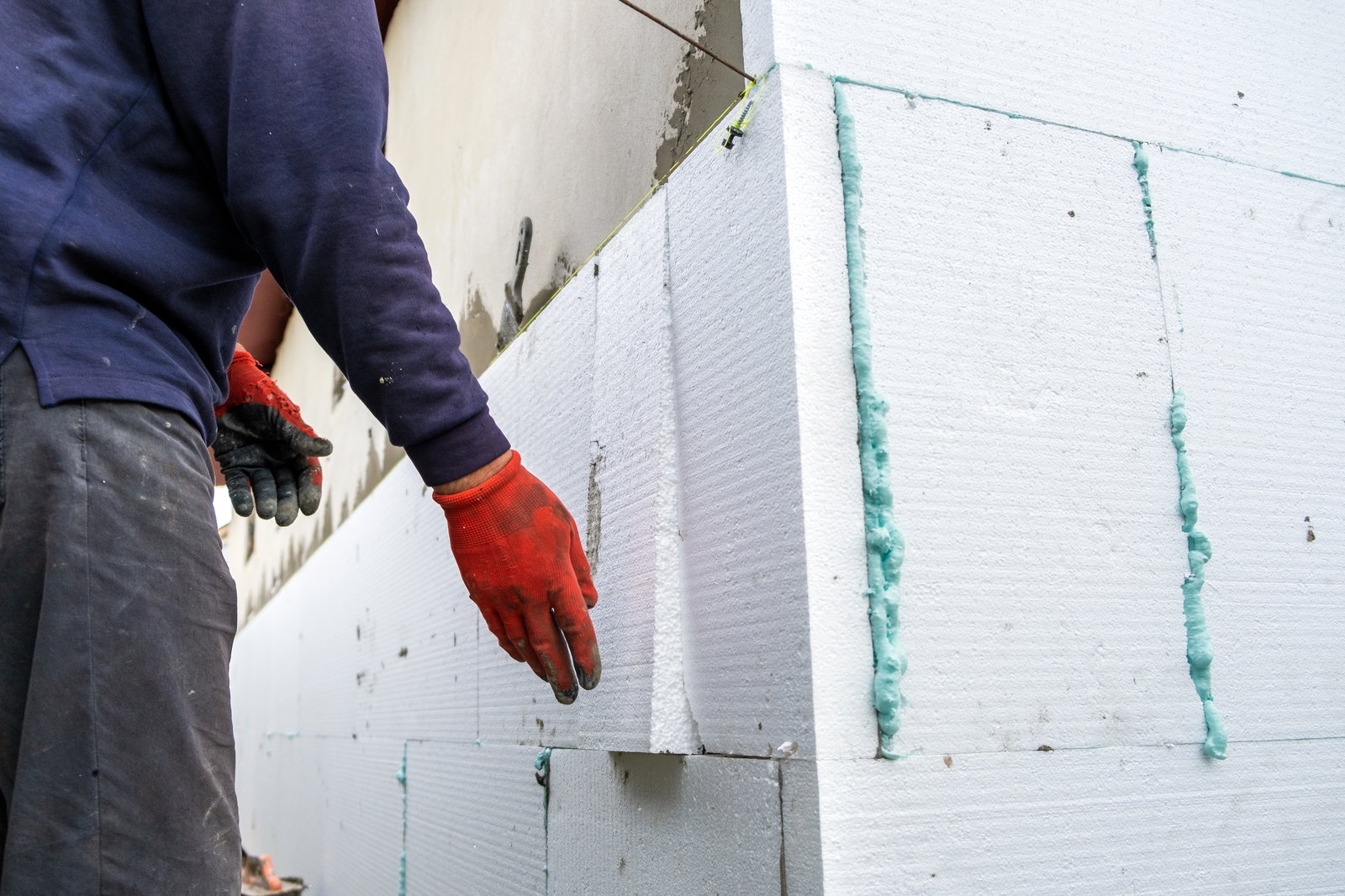 We all yearn for a home that's warm, secure, and inviting, but the harsh reality can set in with dampness and cold. Soon after settling into your new abode, you might spot damp patches making an unwelcome appearance on the walls.
We all yearn for a home that's warm, secure, and inviting, but the harsh reality can set in with dampness and cold. Soon after settling into your new abode, you might spot damp patches making an unwelcome appearance on the walls.
Down in the cellar, pervasive dampness lingers on windows and ceilings, and the first signs of mould, those pesky black dots, start cropping up in corners. These aren't just unsightly marks; they signal a house with insufficient insulation, a structure that's letting more than just water seep through.
From ground-floor spaces to the upper rooms, you can feel a distinct chill, revealing the house's struggle to retain heat. While every home emits warmth, it often escapes beyond its cosy confines through insulation gaps referred to as thermal bridges.
This heat loss can be attributed to structural hiccups in the building, inadequate insulation, or poorly executed installations, including the use of subpar thermal insulation like polystyrene.
So, why is proper insulation important? The answer lies in correctly applying solid wall insulation. By using external wall insulation appropriately, you can maintain a pleasant temperature throughout the year, keeping the unwanted summer heat at bay and preserving precious warmth in winter.
This well-regulated environment not only enhances your home's comfort but also leads to substantial savings on heating bills. What's more, the choice of external wall insulation material goes beyond just financial considerations. It affects safety standards, room acoustics, and the overall cosiness of your residence.
For instance, contractors specialising in external rendering can employ specific insulation and rendering techniques to ensure your home doesn't become too hot in the summer or lose heat in the winter. Furthermore, the right insulation choices can positively impact the environment, bolstering the eco-friendly features of your home.
Choosing the Right Insulation for Your Building
Efficient insulation is key to keeping your home warm, saving you significant money on energy bills, and reducing CO2 emissions. With energy costs on the rise, ensuring proper insulation is more crucial than ever. Estimates suggest that a poorly insulated home could be losing as much as 30% of its heat through the roof and walls.
When it comes to insulating your building, there's a wide range of options to consider, each with its own set of pros and cons. Your decision should hinge on factors like the insulation's location, your budget constraints, and whether a type offers superior insulation or easier installation.
Let's delve into various insulation types and figure out which one could be the best fit for your building.
Insulation Materials: A Variety to Choose From
Insulation can be crafted from various materials, each having its own advantages and drawbacks:
-
Fibreglass - Widely used and budget-friendly. Suitable for both residential and commercial buildings, it can snugly fit into small spaces. Plus, it's fire-resistant.
-
Foam Board or Rigid Foam - Excellent for insulating roofs and foundations, providing high R-values and fitting into tight spaces.
-
Reflective Insulation - Utilises reflective surfaces to deflect radiant heat away, making it perfect for hot climate attics.
-
Natural Fibres (like wool or cotton) - Environmentally friendly and offer solid thermal performance.
-
Mineral Wool (rock and slag) - Provides excellent thermal and acoustic insulation for both commercial and residential properties.
Assess Your Building's Needs
When contemplating various insulation types, keep these factors in mind:
-
Climate - Factor in your location. Colder climates may necessitate higher R-values, meaning thicker or more efficient insulation.
-
Budget - Various insulation types come at different costs. Figure out what fits your insulation budget.
-
Moisture - Some materials resist moisture better, crucial in damp environments.
-
Space - Consider the available space for insulation. In some cases, thin, high-efficiency materials might be necessary due to space constraints.
-
Maintenance - Think about long-term upkeep. Some insulations may degrade over time or lose effectiveness without proper care.
-
Safety - Check fire safety ratings, especially for areas where fire safety is a concern, such as a garage.
By weighing these factors, you can make a well-informed decision on the right insulation for your building.
What's the Core Purpose of Insulation?
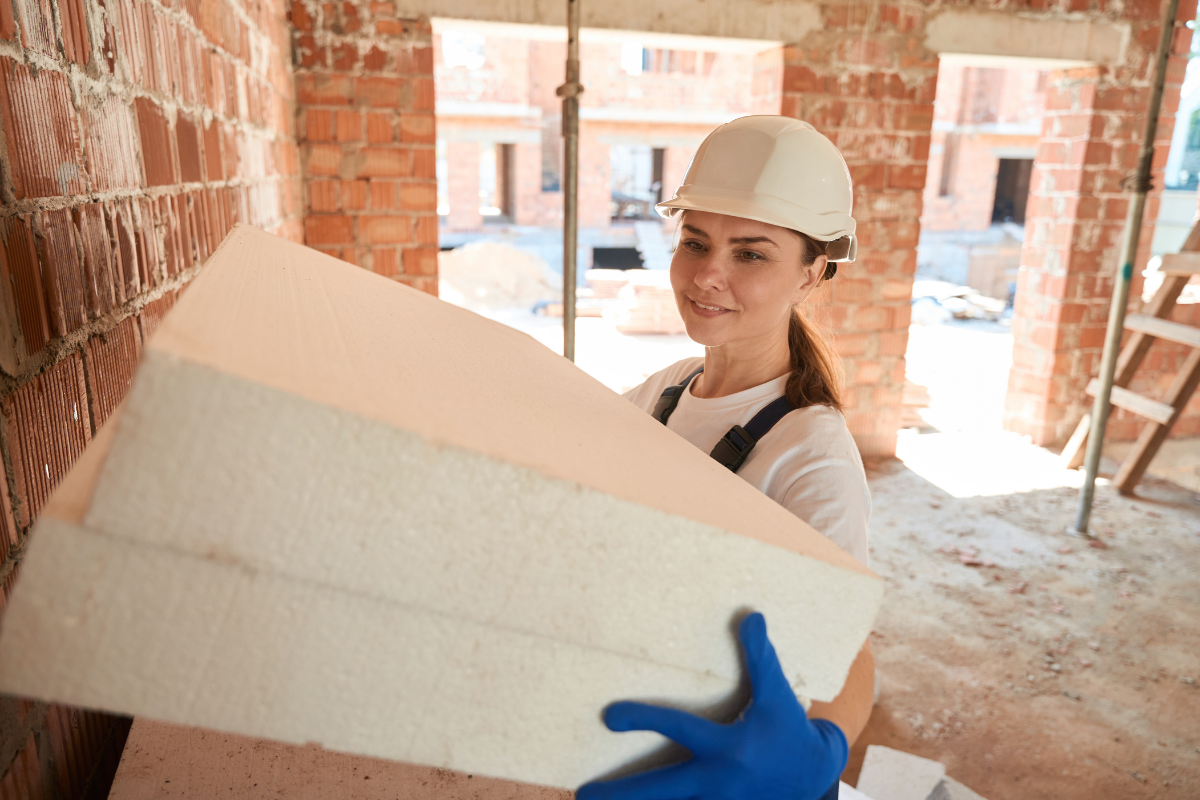 The primary objective of insulation, particularly external wall insulation and thermal insulation, is to construct an energy-efficient shield around a property. This ensures that warmth is conserved during chilly months and external heat is kept at bay during warmer seasons, resulting in a consistent and pleasant indoor temperature throughout the year.
The primary objective of insulation, particularly external wall insulation and thermal insulation, is to construct an energy-efficient shield around a property. This ensures that warmth is conserved during chilly months and external heat is kept at bay during warmer seasons, resulting in a consistent and pleasant indoor temperature throughout the year.
It's not just about generating heat in a home; it's about effectively preserving and managing that warmth. Even the most efficient heating systems may become ineffective if the warmth rapidly escapes through inadequately insulated walls, roofs, and floors.
This underscores the critical need for effective insulation. It stands as the foremost measure in championing energy efficiency and curbing carbon emissions, aligning with commitments to environmental sustainability.
External wall insulation and thermal insulation play a crucial role in minimising energy losses, enabling cost-effective heat retention. Typically, this involves applying insulating materials to a property's external walls, reducing the escape of heat.
Simultaneously, it counteracts the infiltration of cold air, fostering a consistent indoor temperature and lessening reliance on artificial heating.
Insulation strives to establish a more energy-efficient environment, potentially enhancing comfort while trimming down energy consumption and expenses.
Frequently Asked Questions
Q: What are the different options for insulating exterior walls?
A: Common options for insulating external walls include rigid foam insulation, spray foam insulation, and traditional fibreglass or mineral wool insulation.
Q: How does insulation contribute to energy efficiency in a home?
A: Proper insulation reduces the need for excessive heating or cooling, leading to lower energy bills and reduced carbon footprint, thus making the home more energy efficient.
Q: Can insulation help in improving indoor air quality?
A: Yes, insulation can contribute to improving indoor air quality by reducing the infiltration of outdoor pollutants and allergens into the home.
Q: What is the best type of insulation for floor insulation?
A: For floor insulation, options like rigid foam insulation, spray foam insulation, and mineral wool insulation can be considered based on the specific requirements and conditions of the space.
Q: How does insulation help in preventing condensation issues?
A: Proper insulation can help in preventing condensation by maintaining consistent temperature levels, reducing moisture buildup, and minimizing the risk of mold and mildew growth.
Conclusion
In conclusion, the choice of suitable insulation is a crucial factor in maintaining a comfortable and energy-efficient environment in buildings. From understanding the distinctions between materials like Glass Mineral Wool and Rock Mineral Wool to considering factors such as R-values, climate, budget, and safety, a well-informed decision can lead to substantial benefits.
The core purpose of insulation, particularly external wall insulation and thermal insulation, is to create an energy-efficient shield, ensuring consistent indoor temperatures and reducing reliance on artificial heating.
By embracing effective insulation practices, not only can we enhance comfort but also contribute to energy conservation and environmental sustainability. Making the right insulation choices is a key step towards creating homes that are not only warm and inviting but also aligned with eco-friendly principles.

Samuel Hitch
Managing Director
Buy Insulation Online.
Leave A Reply
Your feedback is greatly appreciated, please comment on our content below. Your email address will not be published. Required fields are marked *
